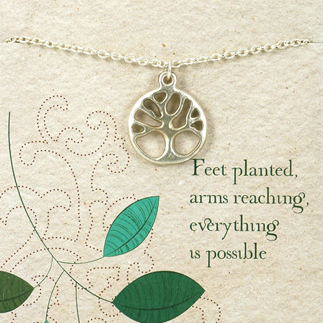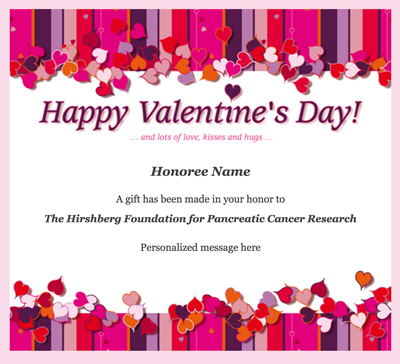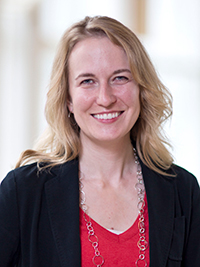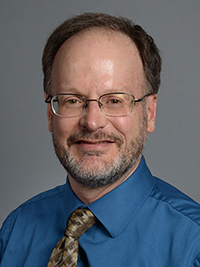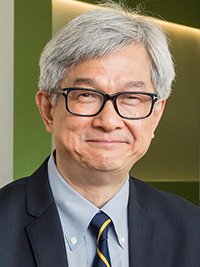In 2019 the Hirshberg Foundation supported UCLA in the recruitment of Miklos Sahin-Toth, MD, PhD, a leading pancreatic disease researcher and a specialist in chronic pancreatitis. The Sahin-Toth Laboratory is located next door and works closely with the The Ronald S. Hirshberg Translational Pancreatic Cancer Research Laboratory, headed by long-standing director Guido Eibl, MD, Professor, Department of Surgery.
The two labs formed a strategic alliance to better understand how diet, obesity, genetics & inflammation contribute to pancreatic cancer acceleration. Dr. Eibl’s lab remains at the forefront of cutting-edge investigations into treatment, cancer biology, and potential preventive measures. Dr. Sahin-Toth’s lab focuses on hereditary chronic pancreatitis, a major risk factor for pancreatic cancer. Drs. Eibl and Sahin-Toth are committed to illuminating the role of pancreatic inflammation in cancer development and exploring potential interventions that could thereby reduce cancer risk. The two labs were awarded a collaborative research grant in 2020 to continue their important coordinated efforts.
In 2020, Dr. Sahin-Toth’s lab published the results of their research in various medical journals. Publishing this research adds to the understanding and body of knowledge on pancreatic cancer, helping researchers around the globe. As we heard from all labs, 2020 brought the added study of COVID-19 research to all disciplines, including Dr. Sahin-Toth’s. We are very proud of the accomplishments of both teams and look forward to continued progress.
Publications from the Sahin-Toth Laboratory in 2020
Gastroenterology 2020, 158:1083-1094. Jancsó Z, Sahin-Tóth M.
This seminal study demonstrates that a mutation in the main digestive enzyme, trypsinogen, makes mice more susceptible to pancreatitis. The genetic mutation investigated in this study was described in patients with hereditary pancreatitis. A major goal of our laboratory is to model human disease in mice and use the mouse models to test new therapeutics.
Gastroenterology is the leading US journal in the gastroenterological sciences.
Gut 2020, 69:1-2. Hegyi E, Tóth AZ, Vincze Á, Szentesi A, Hegyi P, Sahin-Tóth M.
This paper describes the observation that a commonly found genetic risk factor that predisposes to pancreatitis has a larger effect in the context of chronic alcohol abuse. The findings confirm that genetic and environmental risks factors interact and amplify each other’s effect on disease development.
Gut is considered the top journal in the gastroenterological sciences.
Pancreatology 2020, 20:288-292. Mosztbacher D, Demcsák A, Sahin-Tóth M.
This is an important methodological paper that describes how to measure the activity of digestive enzymes trypsin and chymotrypsin in the pancreas of mice. These digestive enzymes play important roles in the development of pancreatitis and routine and reliable measurement of their levels is a key experimental technique.
Pancreatology is the official journal of the International Association of Pancreatology and the European Pancreatic Club.
BMJ Open 2020, 10:e029660. Koncz B, Darvasi E, Erdősi D, Szentesi A, Márta K, Erőss B, Pécsi D, Gyöngyi Z, Girán J, Farkas N, Papp M, Fehér E, Vitális Z, Janka T, Vincze Á, Izbéki F, Dunás-Varga V, Gajdán L, Török I, Károly S, Antal J, Zádori N, Lerch MM, Neoptolemos J, Sahin-Tóth M, Petersen OH, Hegyi P.
This clinical study protocol originated from Peter Hegyi, Phd, Professor of Medicine, University of Pécs, Hungary. This publication lays out the parameters for LIFESPAN, an observational, multicenter, multinational case-control study to examine associations between socioeconomic factors, dietary habits, physical activity, chronic stress, sleep quality and acute pancreatitis. The Sahin-Toth lab was invited to contribute as part of an international board of advisers.
BMJ Open is an open access journal, dedicated to publishing medical research from all disciplines.
American Journal of Physiology-Gastrointestinal and Liver Physiology 2020, 318:G694-G704. Orekhova A, Geisz A, Sahin-Tóth M.
Here, we investigated the interaction of genetic predisposition and environmental injury on the development of pancreatitis. In this study, a mouse model carrying a mutant digestive enzyme was fed an alcohol diet, which facilitated the progression of pancreas damage.
The American Journal of Physiology-Gastrointestinal and Liver Physiology publishes papers on the physiology and mechanism that affect the liver and gastrointestinal system.
Journal of Biological Chemistry 2020, 295:3447-3455. Toldi V, Szabó A, Sahin-Tóth M.
This biochemical study examined how one digestive enzyme (chymotrypsin C) regulates another (mesotrypsin) and how this impacts the development of pancreatitis. Our laboratory has a long track record in digestive enzyme biochemistry, and experiments like these formed the basis of our successful mouse model program.
The Journal of Biological Chemistry is a preeminent biochemical journal.
Gastroenterology 2020, 158:1538-1540. Sahin-Tóth M.
This is an editorial on the recent discovery of TRPV6 mutations in patients with chronic pancreatitis. TRPV6 is a calcium channel found in the excretory ducts of the pancreas. Identification of new genetic risk factors is always exciting as these represent novel targets for therapeutic intervention.
Gastroenterology is the leading US journal in the gastroenterological sciences.
Recommendations from the working group for the international consensus guidelines for chronic pancreatitis in collaboration with the International Association of Pancreatology, the American Pancreatic Association, the Japan Pancreas Society, and European Pancreatic Club.
Pancreatology 2020, 20:579-585 Hegyi P, Párniczky A, Lerch MM, Sheel ARG, Rebours V, Forsmark CE, Del Chiaro M, Rosendahl J, de-Madaria E, Szücs Á, Takaori K, Yadav D, Gheorghe C, Rakonczay Z Jr, Molero X, Inui K, Masamune A, Fernandez-Del Castillo C, Shimosegawa T, Neoptolemos JP, Whitcomb DC, Sahin-Tóth M; Working Group for the International (IAP – APA – JPS – EPC) Consensus Guidelines for Chronic Pancreatitis.
Consensus guidelines are important documents that guide clinical management and decision-making. Opinion leaders and experts in the field contributed to this paper that discusses risk factors for chronic pancreatitis.
Pancreatology is the official journal of the International Association of Pancreatology and the European Pancreatic Club.
Scientific Reports 2020, 10:11731. Mosztbacher D, Jancsó Z, Sahin-Tóth M.
This study tested the role of a digestive enzyme (chymotrypsin-like protease) in pancreatitis using a novel mouse model deficient in this enzyme. The observations indicated that chymotrypsin-like protease does not play a significant role in the disease. Although this is considered a “negative study,” the findings are still important as they add to our growing knowledge on digestive enzyme function in health and disease.
Scientific Reports is an open access journal publishing original research from all areas of life sciences. It is part of the prestigious Nature Research journal family.
Gastroenterology 2020, 159:824-827. Hegyi P, Szakács Z, Sahin-Tóth M.
This paper is our contribution to understanding the science behind COVID-19. In this editorial, which also contains original data, we highlight similarities between severe COVID-19 and severe acute pancreatitis. Remarkably, the same toxic substances and immunological factors determine progression of both diseases.
Gastroenterology is the leading US journal in the gastroenterological sciences.

